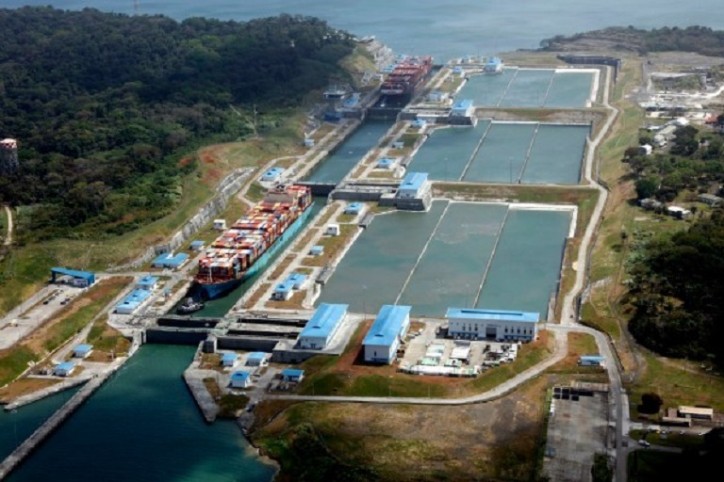The Panama Canal closed its 2018 fiscal year (FY 2018) with a record tonnage of 442.1 million Panama Canal tons (PC/UMS), which represents a 9.5 percent increase from the previous year.

With this tonnage, the Panama Canal surpasses the cargo projections of 429.4 million PC/UMS tons for FY 2018, as well as the 403.8 million PC/UMS tons registered in FY 2017.
“The Panama Canal continues to exceed our expectations, reinforcing every day the importance of the waterway’s expansion and its impact on global maritime trade,” said Panama Canal Administrator Jorge L. Quijano. “This is the results of the efforts of our committed workforce who made this an extraordinary year.”
The increase was driven by the transit of liquefied petroleum gas (LPG) and natural liquefied gas (LNG) carriers, containerships, chemical tankers and vehicle carriers.
Performance by Segment
The container segment continued to serve as the leading market segment for tonnage through the Canal, accounting for 159 million PC/UMS tons of the total cargo, of which 112.6 million PC/UMS tons transited the Expanded Canal. Tankers – which include liquefied petroleum gas (LPG) and liquefied natural gas (LNG) carriers – represented the following market segment with 130.3 million PC/UMS tons.
The next leading segments included bulk carriers (73.7 million PC/UMS tons) and vehicle carriers (49.5 million PC/UMS tons).
Main Users and Routes
In terms of cargo tonnage, the main routes using the Panama Canal in FY 2018 were between Asia and the U.S. East Coast, the West Coast of South America and the U.S. East Coast, the West Coast of South America and Europe, the West Coast of Central America and the U.S. East Coast and intercoastal South America.
The main users during FY 2018 were United States, China, Mexico, Chile and Japan. A total of 62.8 percent of the total cargo transiting the Canal has its origin or destination in the United States.
Source: Panama Canal